Dragon Age has always been on the frontlines when it comes to diverse protagonists, though it is far from the only game to offer this. And giving gamers a chance to play as various genders, races and sexual identities is an awesome thing. But it also makes storytelling more complicated, because if the story doesn’t reflect this diversity, it only makes sense in a world where there is no discrimination based on these things.
Some fantasy universes actually go in that direction. Not always wholly successfully or consistently – frequently the implication is that the universe is all equal, but it just so happens that most people in power are straight white males. This is probably partly a result of lingering prejudices and partly thanks to pseudo-medieval tropes tied to the fantasy genre. It can break the suspension of disbelief just a little, but overly, it’s not such a big deal.
Many other universes, on the other hand, decide to keep some form of systemic injustice, usually in the form of fantastic racism. Dragon Age is just one of them. And this is where the complications come into play. Because ultimately, complete freedom in character creation makes sense only in a world without structural injustice. That means an utopia, and nice as it might be to live in one, they are rather boring as far as narratives go, proving little in the way of tension for the story to use. The most interesting tales usually employ conflict with society in some ways, and that almost always means systemic oppression.
But once you do incorporate structural injustice, can you really afford to give players complete freedom in what character they come up with?
Let me use the three Dragon Age games as an example here, to illustrate the problems inherent in this approach.
As I said, its world is not one where the universe pretends at no prejudices and your character has, in fact, no background, their race and gender influencing nothing at all. No, Dragon Age limits your choice to a few available backstories, and with these backstories go specific dialogue options and even quests in the game. Where games like Elder Scrolls do the equivalent of colourblind casting, with all the problems it entails, Dragon Age theoretically does the equivalent of writing roles for minorities, telling their particular stories.
But. (There is always a but.)
The different games are a very good example of the different ways in which one can deal with such an approach, and different measures of success.
In some ways, the best example of how to do it is Dragon Age: Origins.
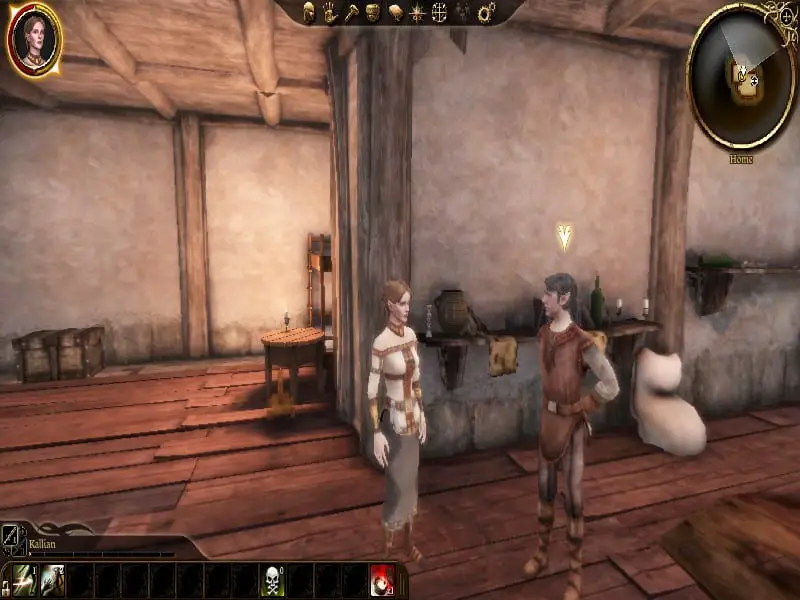
There are specific origin quests for different character backgrounds picked, and most of them are even quite well-done. They also have tie-ins later in the game, where you get a chance to meet characters already familiar to you. Mostly, whenever something arises where your origin would likely make you react in a specific way, you actually get the option to do so. There are a few slip-ups, but nothing major. Great job, right?
But the only reason why Origins can be this good at story customization is because, at its core, it is a fairly generic hero story.
A novice comes into a mysterious order, their mentor dies, and the task of saving the world falls to them. Individual subquests then have you circling through all the places your past can tie in to, so that every fantastic race has a chance at their customized experiences. The mysterious order in question gives the hero legitimacy beyond any background they might have. It is a decent formula to make it work, but unfortunately unless you want to make all of your games effectively identical, it can only be used once.
Dragon Age II decided to go a different way and limit the number of background choices. There is, effectively, only one backstory, just slightly tweaked depending on your character’s class. In most ways, they decided to abandon the path of different origins in this installment. I still mention it in this article, though, because in spite of this, they rather ironically managed to mess it up. Because they still let you to pick your character’s class, and it just so happens that the central conflict of the game is all about mages and their discrimination.
The oppression of free mages is supposed to be everywhere. So when you play for one such free mage, publicly casting your free magic everywhere the entire game and the most you get for it is slight lip service…well, that is just a little strange.
The lesson should be pretty obvious here: if you make oppression of a particular group one of the central themes of your story, and yet your hero, belonging to that group, never really experiences it, then you are doing something wrong. It weakens the story by making the odds less, it breaks the suspension of disbelief, and it adds to the feeling that your protagonist is really just a generic stand-in. I really shouldn’t need to spell this out.
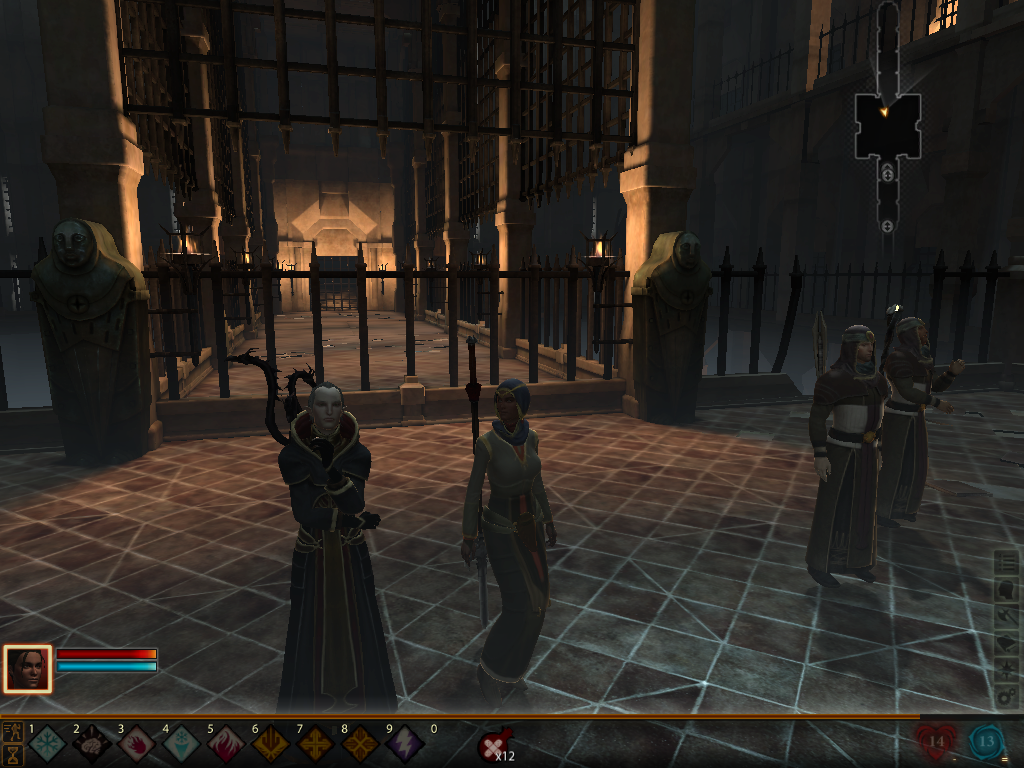
Apparently someone should have spelled it out to the game creators, though, because the very same problem appears again in Inquisition. That game returned to more diverse origin stories, but didn’t actually keep the different origin quests, only giving you your character background in a very brief summary. Later, too, the specific quests tied to your origins were just tabletop missions that took two clicks to solve, and some of them with deeply problematic implications to boot. All of that is a pity, but doesn’t touch the main problem, the one carrying over from Dragon Age II. Just as people would not treat a mage and a non-mage the same in a world that hates mages, so, too, the treatment of other oppressed groups would be much different from the privileged ones.
On my first playthrough of Inquisition, I was a free elven mage, an intersection of two despised groups (she was a woman, too, but let’s pretend we buy the fiction that there is hardly any sexism in the world of Dragon Age for now). On the second, I was a human noble, so two privileged groups. The character starts the game in a very vulnerable position, and they were both treated the same.
To put it quite plainly, that is not how it would go.
In fact, given the circumstances of the beginning of the game and if I see the way the noble character is treated as base comparison, I am quite certain the free elven mage would actually be dead. Beaten to death by an angry mob. Because these are things that actually happen in the world, and they would certainly happen in the world Dragon Age is set to take place in.
It is not that you never encounter any racism when playing as an elf in Inquistion – there are a few cases of casual remarks. But nothing near to what would be realistic in the setting we’re meant to believe in. Nothing that would actually influence the story in a meaningful way.
There is one nice case, though, that well-illustrates what this game actually does. When the protagonist encounters her scout in what is essentially an elven mass grave of a genocide, the scout comments that it just seems sad there are so many dead elves. If you play for an elf, you can stare at her incredulously and then quote an ancient oath at her to make her realize that yeah, you have in fact thought about this before and it seems quite sad to you, since it was the genocide of your bloody ancestors she’s talking about. She blushes and apologises to you for not realising it was this personal for you. This kind of casual erasure is brilliantly captured, and it is also what the game does all the time.
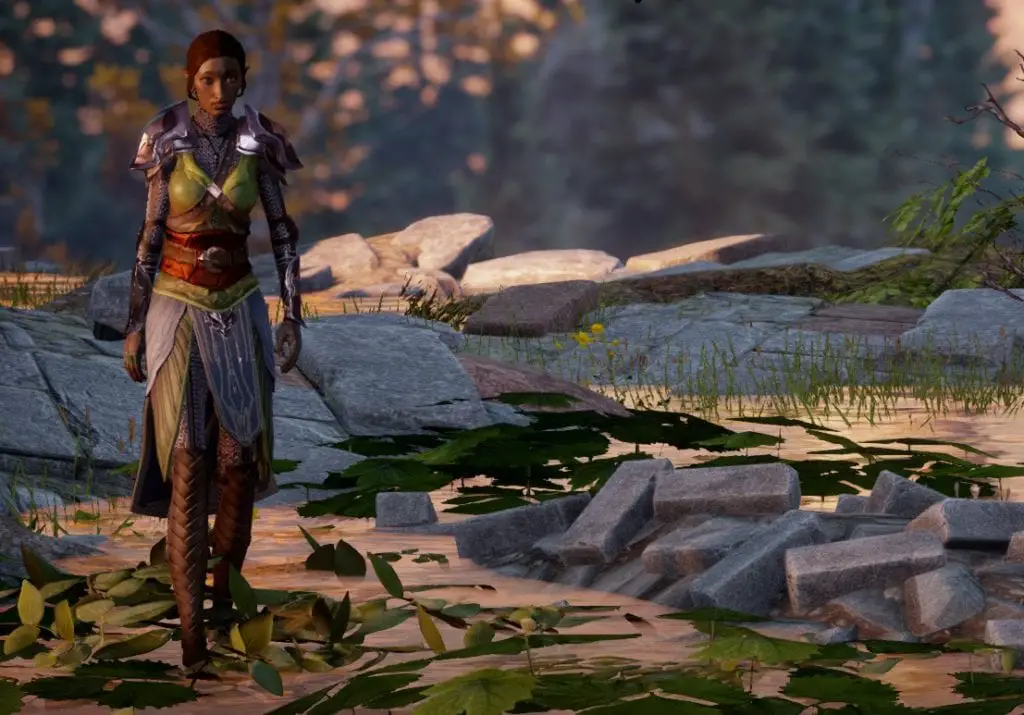
It is nice to have this one shout-out, but when you go through the plains where the genocide happened and collect quest points for landmaks commemorating the killings of individual elven heroes, the elven protagonist is allowed no reaction. When you have to listen to one of the companions expound on how your heroic knights were probably just thieves and murderers, you are allowed no reaction. When you come to an elven temple, two of your companions (one of them actually not even an elf) translate the elven writing for you. And, best of all, at one point when you find a crucial piece of elvish history, your own elvish character suggests that you could give it to the Chantry – as in, the religious institution responsible for the genocide. Oh, and also one your character has been kind-of affiliated with from the start of the game, because why not?
You see the problem?
There is a lot of elvish material in the game; it’s one of the cornerstones of the story. But it’s treated in exactly the way all non-Western cultures are treated in the real world. Namely, simply exploited without any regard for the actual people it might tie in to. Much like with romance, though much less amusingly, the creators of the game brilliantly captured the same aspects of racism and orientalism in the structure of their story itself. The elves have always been a stand-in for racial minorities from our world, and here they are, always an object and never truly a subject, even when one of them is the supposed protagonist. The very same thing, to a lesser degree, goes for the mages.
Now the question: is this a problem when the cultures and races in question are not actually real races, but instead Thedas elves or, you know, wizards?
My answer is, yes, absolutely. Less of a problem, but still. Because it still perpetuates the patterns of oppression. It still teaches you, as you play the game, that you can stand in a temple of one culture and speak over a member of the actual culture in question as you explain its meaning. That you can ignore someone’s religious sensibilities completely. It teaches you an outsider can somehow have access to the “true” meaning of a cultural tradition, better than the insiders do. And so on.
Of course, it begs the question of how much of this is actually a product of some kind of racism (given that the groups in question, elves and mages, are not ones actual real world prejudices can be connected to) and how much of it is simply a byproduct of having multiple origins for the story protagonists. The harmful effects I’ve outlined remain whichever the case, but it rather changes the conversation.
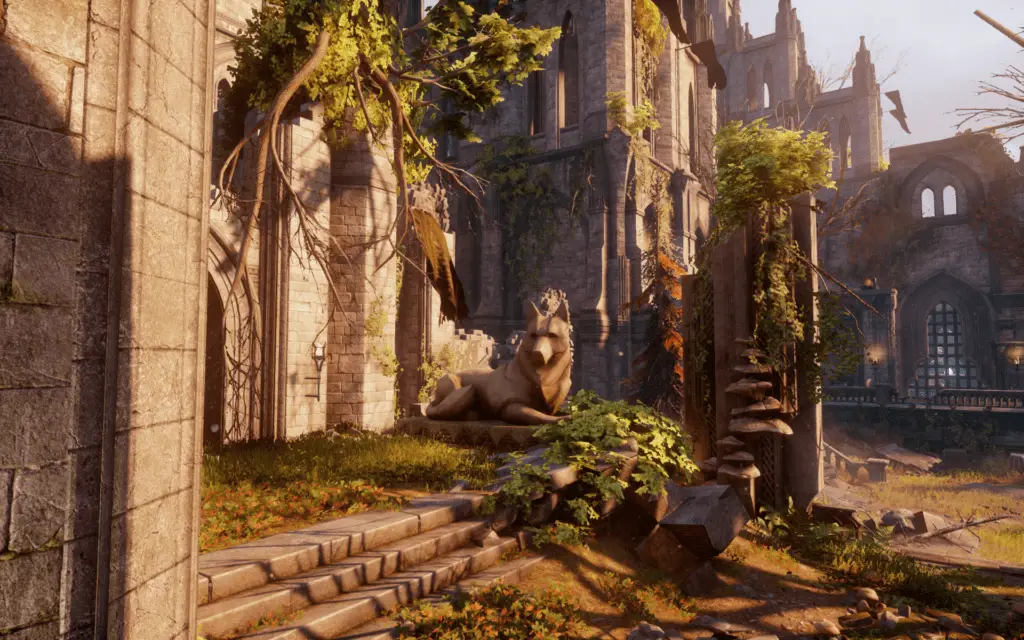
It is entirely possible that it is simply a byproduct. But it is curious, is it not, that it just so happens to be the group that is underprivileged in-universe which gets the short end of the stick in the story. When playing for a human, you can waltz through countless elven ruins without giving the religion they tie in to any respect. When you play for an elf, you have to at least pretend to be the herald of a human prophet. Is it something about crafting a narrative of oppression that makes the story itself warp into this sort of shape? Do the writers become so immersed in their own world that they become subject to its prejudices?
But these are fanciful musings. To get back on point, as long as you have diversity both in character backgrounds and in the cultures they encounter, there are going to be differences between the reactions of different characters. Profound ones. Perhaps bigger ones than can ever be covered by a few dialogue changes. As I said, the elven free mage would likely have been dead at the beginning. That rather changes the story, does it not?
Simply said, most stories cannot be crafted without paying mind the the protagonist’s background, because their background shapes who they are and how the world reacts to them, and that is what any good story grows from.
Most games avoid this by having a clearly defined protagonist. Others do so by ignoring any differences in background. Each approach has its own upsides when it comes to diversity. The second frees you from the necessity to constantly play for cis straight white men, which we all know would happen if the protagonist was a fixed choice. It is, of course, merely a visual thing, since the way these games are written normally means the protagonist is treated as a white man would be, no matter what they look like, but that is refreshing and transgressive in its own way too.
The first, on the other hand, can do much good when the creators actually do not make the hero at least one of these categories. Because then, all who play the game go through the experience of being, for a time, someone other than the most common idea of a hero. When the background is well done, it can be very rewarding. But still, the thing is, we do not need games for that. Films and books work in this way, with a clearly defined protagonist who, hopefully, doesn’t always have to be the entitled male. Games have the potential to do something more interesting.
This is why, in spite of all the issues it brings, I much prefer the way Dragon Age decided to go. I much prefer actual diversity in my options regarding the hero. Still, all of the problems mentioned above should not be ignored, and generic stories in the mold of Origins are hardly a general solution.
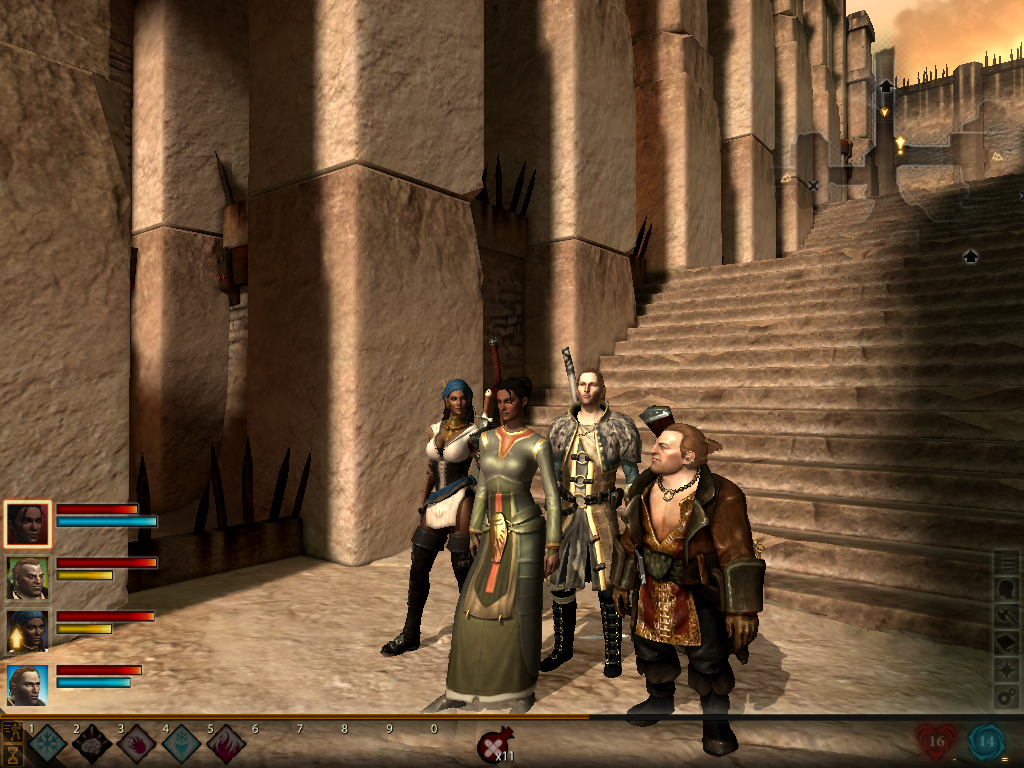
In fact, I believe the essential direction Dragon Age II went in was a good one. I believe that limiting the diversity somewhat is the only way to have the stories actually be diverse, not just white man tales with different visuals and a bit of lip-service. However, it is telling that when they had to choose one race to concentrate the origin story on, they chose the most privileged one.
The multiple-origins approach is viable if different, but in some essentials similar characters are found. Speaking of the Dragon Age world, an elf from an alienage, from a wandering clan and an ex-slave from Tevinter will have many disparate experiences, but also many shared ones, and the way people will react to their presence will also be similar enough not to tax the storytelling overmuch. A casteless dwarf and an alienage elf have different cultural backgrounds, but the experience of being the poorest and most downtrodden in a city can be enough to build a similar story on. A mage and a rebel Qunari would have dealt with a lot of similar prejudices in their lives, though again their views would be quite opposite to each other. I suppose a human and dwarven merchant, too, would have a lot in common, though telling that story seems much less interesting.
There can be enough diversity left when the choices are curtailed somewhat, and the story this results in would be more faithful to a character’s chosen background. It would look less like people’s stories and cultures were interchangeable and unimportant for who they were. I, for one, hope that this is the way the eventual Dragon Age IV will go.

